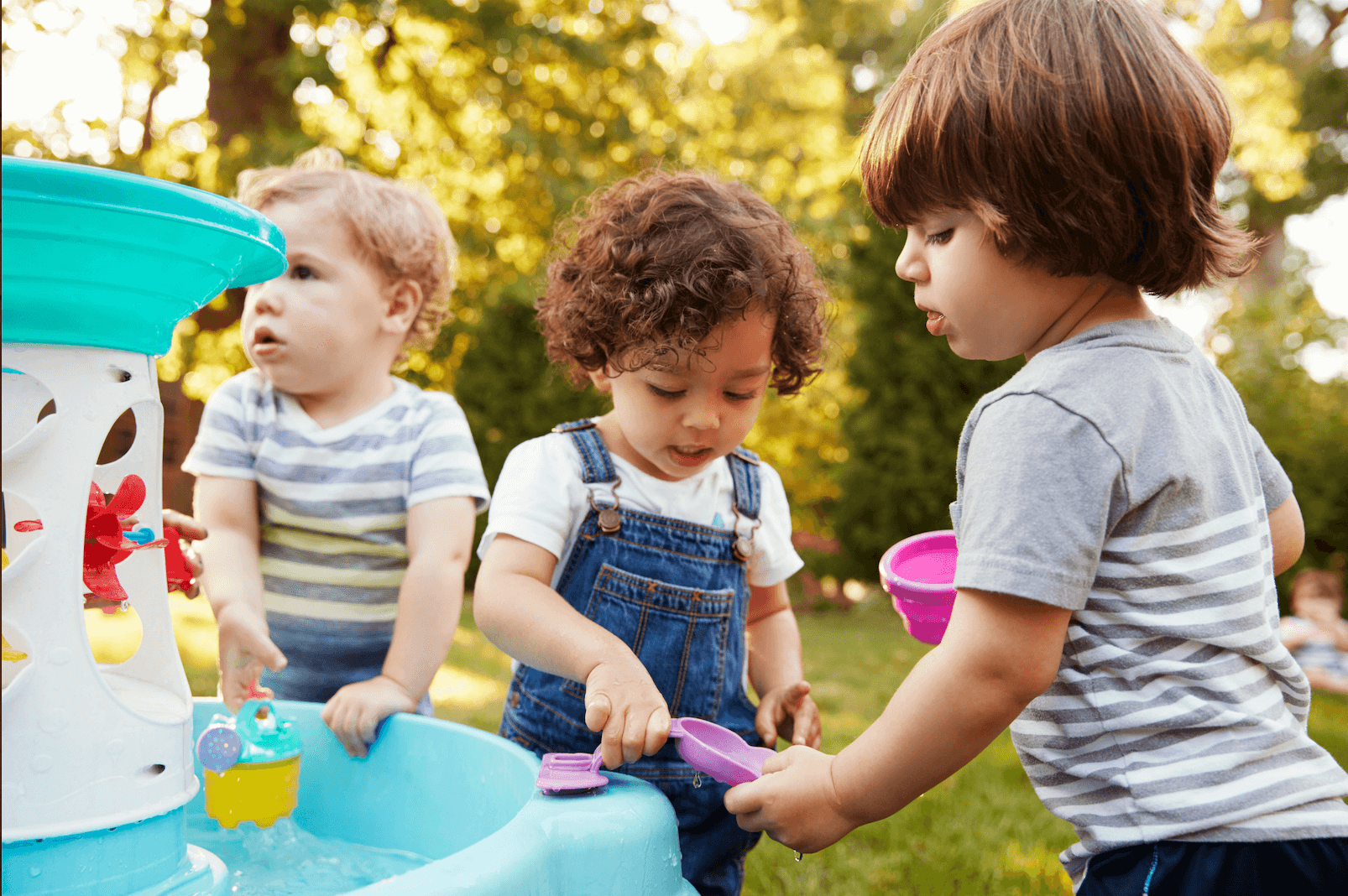Help! My very active toddler is not talking
As a parent of a very active toddler, it can be worrisome if your child is not meeting their language milestones.
You may notice that your child is meeting all of their motor milestones, like sitting, crawling, walking, and running; but maybe they aren’t reaching the language milestones such as first words and vocabulary growth.
Before we go any farther, it’s important to remember that every child is developing at their own pace, and that there is a wide range of what is considered “normal” when it comes to speech and language development. And if you are worried that your little one is falling behind, there are tons of resources to support you :)
In this post I’ll talk about:
What’s expected when it comes to talking?
I’m going to quickly cover some talking milestones for toddlers at different ages. You can think of milestones as benchmarks, or the bottom limit for the “normal” range.
Not meeting a milestone doesn’t necessarily mean your child is delayed or will need speech therapy. But it is an indicator that you’ll want to keep an eye on things and your child’s pediatrician can help you do that.
12 Months - First words (first words appear between 10-14 months)
18 Months - Says about 20 words or more
24 Months - Starts putting 2 words together when talking
30 Months - Says far more words than you can count
36 Months - Says some sentences with 4+ words
Is it “normal” for a very active toddler to be a late talker?
Being an active toddler does not put a child at a greater risk of being a late talker.
It’s important to know that being very active does not impede language development. In fact, being active may expose toddlers to even more language because they are able to move around and observe more things and interactions.
Researchers have found that toddlers who are more physically active have larger vocabularies than their less active peers by about 50 words (Fernald et al., 2013). This suggests that being more active can actually lead to more exposure to language, and therefore more opportunities for language learning.
A separate research study found that toddlers who were more active had better vocabulary, grammar, and story telling skills than their less active peers on average (Okely & Booth, 2005). Again, there seems to be a link between begin more active and developing strong language skills.
However, it is possible that your active toddler is a late talker. About 15% of toddlers will be “late talkers.” Being a late talker doesn’t mean a toddler has a language disorder, but it does suggest they might benefit from some extra support in learning language.
Remember, being very active alone isn’t enough to help toddlers talk
It's important to remember WHY being active helps toddlers talk; it’s not the moving around itself.
When toddlers are busy moving from one place to another they are learning from other people. They might overhear a conversation that wouldn’t have, or you might tell them the name of something new that they found in their exploration. It’s moving around paired with interaction that helps boost toddler’s language learning!
Here are 2 doable and supportive things you can today if you feel your child might be a late talker:
Talk to your child’s pediatrician and discuss the possibility of a speech and language evaluation
Set aside 10 minutes a day for “language practice.” The resources listed below are great for late talkers.
But, developmental growth spurts are expected
Before wrapping things up, I wanted to talk about developmental growth spurts. Just like your toddler grows taller in bursts, their skills in different areas like talking, moving around, and playing will also experience these rapid periods of growth.
When toddlers experience these developmental growth spurts, skills in one area of development seem to skyrocket while skills in other areas seem to plateau. For example, you may notice your toddler has just started running and climbing, and they don’t seem to have learned as many new words in the past weeks. Another example would be noticing that your toddler has started saying tons of new words all of a sudden, but you don’t notice any new motor skills at the same time.
You can think of development like an intricate dance. Your little one is diverting their energy to a specific area of development, mastering a new skill in that area, and then shifting their attention to a different area of development and those corresponding skills. As they are starting from scratch, this is one way toddlers manage to learn so many new things in the first few years of life.
When in doubt, ask for help
This is where pediatricians and other pediatric care providers can be excellent resources. They can help you determine if your child’s next growth spurt in talking is right around the corner, or if it could be time to find the support of a speech therapist.
Now let’s review what we learned about very active toddlers and talking:
-
No, in fact the opposite is true. Being active seems to give toddlers an advantage in learning to talk because they are exposed to more and have more opportunities for language learning.
-
If your child hasn’t said their first word by 14 months old, or if they haven’t started putting 2 words together by 24 months it could be beneficial to talk to your pediatrician about a speech and language evaluation.
-
If your toddler doesn’t seem interested in talking, it can be really frustrating as a parent. Finding the support of a speech therapist can help alleviate some of the pressure on your shoulders. They can work with you to find natural ways to motivate your child to communicate and build their language skills.
Also on the blog…
Written By:
Stephanie Keffer Hatleli, MS, CCC-SLP
Works Cited:
Fernald, L. C. H., Marchman, V. A., & Weisleder, A. (2013). SES differences in language processing skill and vocabulary are evident at 18 months. Developmental Science, 16(2), 234-248.
Okely, A. D., & Booth, M. L. (2005). The relation of physical activity to language development in children. International Journal of Behavioral Development, 29(3), 311-318.
© 2020-2025. Stephanie Keffer Hatleli, MS CCC-SLP. All Rights Reserved.The content offered on ToddlerTalk.com is for informational purposes only. Toddler Talk is not engaged in rendering professional advice, whether medical or otherwise, to individual users or their children or families. No content on this site, regardless of date, should ever be used as a substitute for direct medical advice from your doctor, speech language pathologist, or other health professional. By accessing the content on ToddlerTalk.com, you acknowledge and agree that you are accepting the responsibility for your child’s health and well-being. In return for providing you with information related to home speech and language practice, you waive any claims that you or your child may have as a result of utilizing the content on ToddlerTalk.com.









